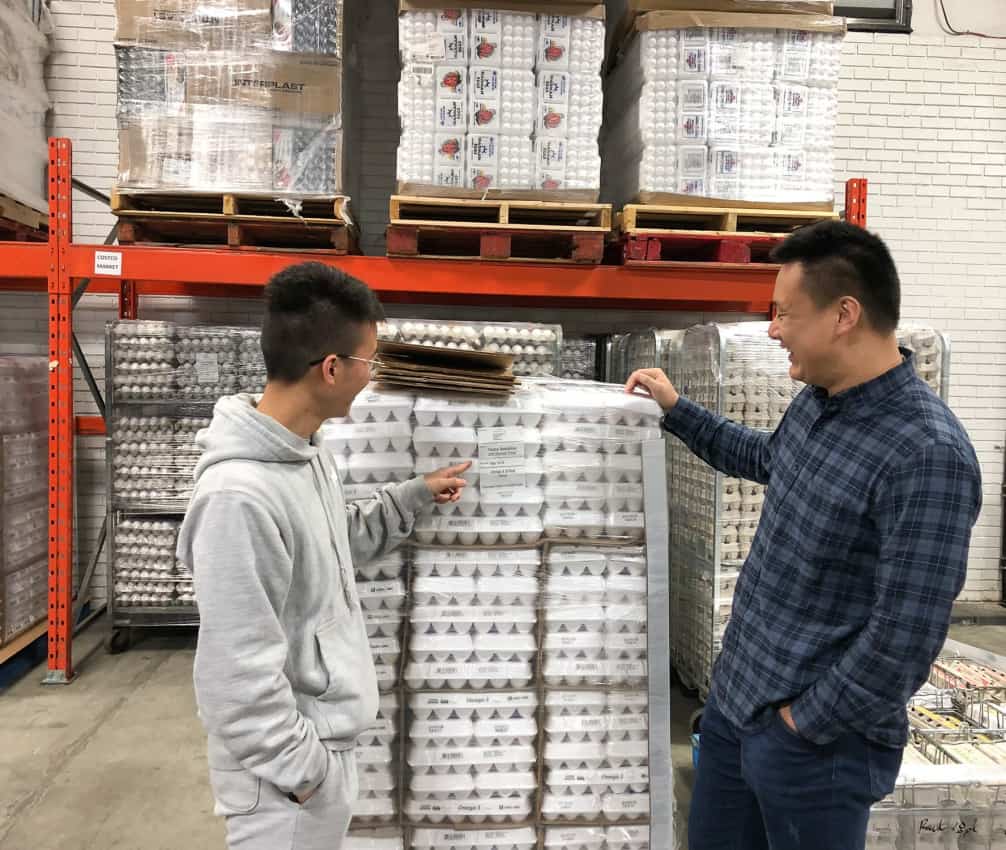
On Sept. 14, the Agricultural Students’ Association hosted its 2019 Farm to Fork Tour: Saskatchewan’s Role in Feeding the World.
With most Canadians being one to two generations removed from farming, this tour — supported by the dean’s office — aims to paint a picture of Saskatchewan’s agri-food industry for first year and international students. This year, 21 students visited the Star Egg processing facility, the Livestock and Forage Centre of Excellence and the Black Fox Farm and Distillery.
The Star Egg processing facility operates with a daily goal to clean and grade 1.2 million eggs from farms across Western Canada. As eggs bob through baths and whiz past on conveyor belts, they are graded to remove any that are cracked or fertilized — marked by an embryo on the yoke.
Cracked eggs are sent to Winnipeg to be processed into scrambled-egg cartons while those that are fertilized are made into pet food. Our tour guides from Saskatchewan Egg Producers, Shawn Harman and Cam Broten, showed us how the company works to reduce food waste and assure that consumers at the grocery store receive the safest eggs possible.
Star Egg provides many Saskatchewan grocery stores with cartons.
The group then travelled to Clavet to visit the LFCE. This University of Saskatchewan facility, which opened this past year, is operated by the College of Agriculture and Bioresources. The research facility is a fully operational farm with over 300 cow-calf pairs. They also have a feedlot where researchers across many disciplines work together to make the beef industry more sustainable.
The LFCE is unique to the world because its equipment enables scientists to monitor nearly all the inputs and outputs for cattle — from food to methane belches. With recent attention on the methane emitted by cattle, animal and poultry science professor Bart Lardner is examining which forage mixtures help to reduce these emissions. With this information, farmers will be able to access benefits such as manure fertilizers while minimizing the negative impacts of cattle production on the environment.
The group concluded their tour at the Black Fox Farm and Distillery’s pumpkin festival. This is one of the many festivals hosted at the distillery each year which allows people from the city and rural areas to get their hands dirty finding their favourite pumpkins or flower arrangement.
The students with the tour were victorious in winning pumpkins over 40 pounds in the pumpkin bowling competition where they had to hit a pyramid of garden pots at the base of a hill. This station was among many open that day including the pumpkin patch, straw bale maze and pumpkin pie sale.
Overall, the tour brought together international and local students. On the bus between stops, stories were shared about how food production varies between countries. Canadian students learned that even on the other side of the world, food produced here in Saskatchewan is held in high regard for its quality and nutrition for consumers.
—
David Mactaggart
Photo: David MacTaggart/ Supplied
Leave a Reply